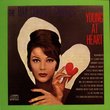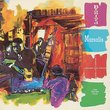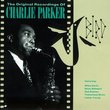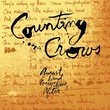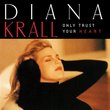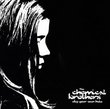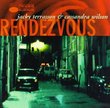| All Artists: Ornette Coleman Title: At the Golden Circle 1 Members Wishing: 2 Total Copies: 0 Label: Blue Note Records Release Date: 1/8/2002 Album Type: Extra tracks, Original recording reissued, Original recording remastered Genres: Jazz, Pop Style: Avant Garde & Free Jazz Number of Discs: 1 SwapaCD Credits: 1 UPCs: 724353551827, 724353551858 |
Search - Ornette Coleman :: At the Golden Circle 1
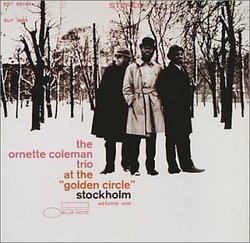 | Ornette Coleman At the Golden Circle 1 Genres: Jazz, Pop
Recorded in Sweden in 1965, these celebrated recordings marked Ornette Coleman's return to activity following a three-year self-imposed exile from performing in public. In contrast to the compact, earthy swing that charact... more » |
Larger Image |
CD DetailsSynopsis
Amazon.com Recorded in Sweden in 1965, these celebrated recordings marked Ornette Coleman's return to activity following a three-year self-imposed exile from performing in public. In contrast to the compact, earthy swing that characterized his groundbreaking quartet recordings for Atlantic (collected on the vaunted Beauty Is a Rare Thing box), here Coleman projects his speechlike melodicism in paragraphs rather than poems, stretching out as if a creative dam had burst. David Izenzon's agility in the bass's high register and liquid beat anchor Coleman's flights of fancy, while Charles Moffett's inventive yet unobtrusive cymbal work adds drama to the overall group dynamic. Few musicians embody the discipline of spontaneity with the unbridled joy Coleman brings to each of these eight cuts, and on At the Golden Circle, Volume Two as well. An inspiring disc. --Jed Distler Similarly Requested CDs
|
CD ReviewsUnchained melody 03/22/2002 (5 out of 5 stars) "A true definition of Ornette Coleman 's idiosyncratic theory of harmolodics eluded this listener in the spring of -66 when I bought this record. The leader's R&B Texas wail, the bassist David Izenson plays as if every note was his last. It's all here: the nascent bag of bends, trills, and double stops that mark Coleman's later work, the weaving of others' solos into the evolving quilt of composition, the ardent commitment to unchained melody on all levels, and a deep, soulful tone that embraces gospel and the Deep South. Couldn't get it. Then in the winter of -67 I was stationed up north in Finland, was in the army and there was a jazz... as a sergeant and he, of all people in the universe, played this music in his room. Amazin stuff, it hit me, and out went the Beatles, Stones, Animals, at least for a while and I realized that I'd finally found the music that speaks directly to your gut. Music that comes from soewhere deep inside Coleman, and not only him, but from some form a collective subconscious of wishes and dreams that he can connect with. I salute the sergeant and still remember with fondness our colemanesque moments in a not so jazz-friendly environment. True, great music is like that. It touches you deep inside and you come out of it a different person." Less is More Todd Ebert | Long Beach California | 02/23/2002 (5 out of 5 stars) "The gigs the Ornette Coleman Trio played at the Golden Cirkeln must have been very memorable for those in attendance. I enjoy most the way Ornette, bass-player Izenzon, and drummer Moffett take on the task of remaining in synch in this free-jazz type setting. Both Moffett and Inzenzon seem to always know how to recover during Ornette's many spontaneous excursions. Furthermore, there is nothing pretentious about this music. Ornette seems to have a theme for each song, and the trio takes it from there. "European Echoes" is my favorite because of its simplicity and humor. I think all musicians should listen to Coleman's music as a means for understanding how to make good music through being real and spontaneous, for those qualities seem to be at the heart of the creative process." Ornette: Open to the public - part 1 G. Schramke | Vienna, Austria | 01/23/2002 (5 out of 5 stars) "Blue Note did a great job with the reissue of this music. Actually it seems to have been one of the really rare occasions, when Ornette Coleman accepted to perform at a Jazz Club, since it is a known fact, that he feels about his music as being more suitable for concert halls. Playing a club date, Ornette obviously felt about sounding a little more "in the groove" than usually. That's just the way, how things start off with "Faces and Places". Nevertheless, he remains faithful to his style, namely to his harmolodic explorations while improvising. This group was really a great one, both David Izenzon on bass with his immaculate arco playing and Charles Moffett with some very powerful drumming are fascinating. Sometimes their telepatic understanding (abrupt changes of key and tempo) can be compared to the legendary teamwork of Mingus and Richmond. "Down" is one of those really haunting ballad compositions, just beautiful. Listening to "Dee Dee" with it's latin-based theme, one can imagine hearing this kind of music being interpretated by one of Coleman's later "Prime Time"-groups, it's really suitable for both acoustic and electric surroundings. As usual for the wonderful RVG-Reissues, we have the opportunity to listen to lengthy bonus tracks, among them a really long version of "European Echoes"."
|

 Track Listings (8) - Disc #1
Track Listings (8) - Disc #1
